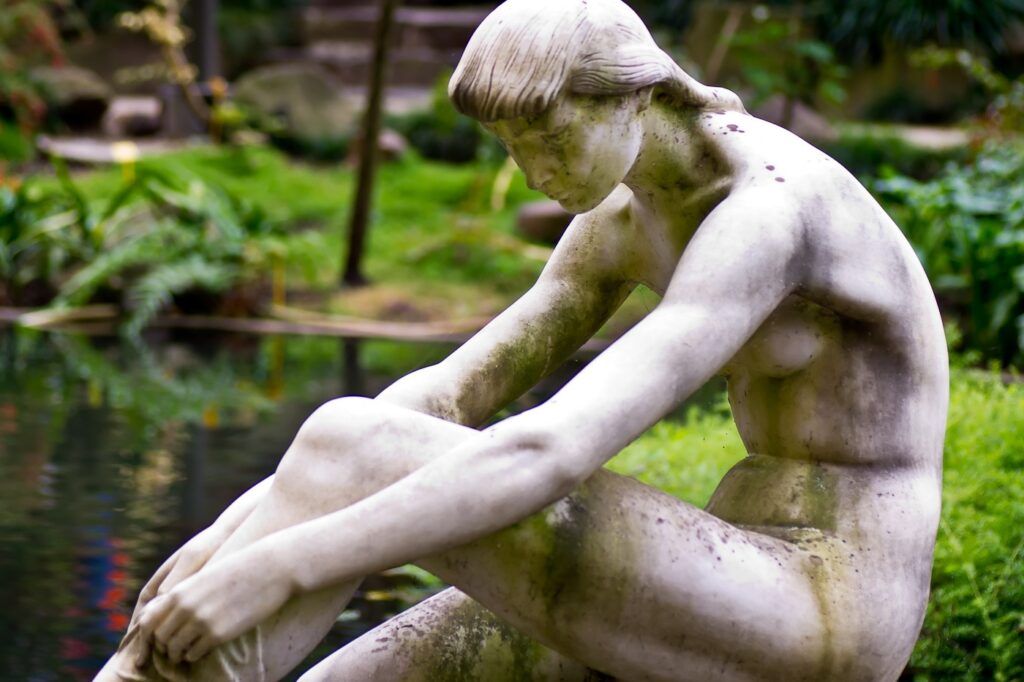Making Sense of an Accidental Discovery

Something that has been on my mind is the mental universe I occupied immediately after my brain was severely injured in a car accident a few years ago. I want to use this opportunity to begin teasing it apart. There was something incredibly spiritual about the short time period in which I was in very early medical recovery. I want to approach the topic honestly, and I worry that it puts me at risk of creating an insulting conflation between an injured frontal lobe and spiritual enlightenment. That sounds like a slapstick joke cliché, doesn’t it?
The perspective I’m bringing to this project consists primarily of the memories I have of my experience, but that isn’t the most solid foundation because of how my memory was affected by the injury. Exploring the meaning that could be extracted from this important time in my life is complicated by the fact that in the time shortly after I woke up in the hospital, the following basic abilities improved rapidly, followed by a period of lengthy, slow progress: recognizing the full context of my surroundings and retaining a memory of what I was experiencing. It follows that the memories come more unheedingly to mind as they are less directly relevant what I’m trying to communicate.
The following is a list of the qualities that were lost in the very short term: grudges, judgments, anxiety, anticipation, and boredom. As well as unique positive emotional attachments, self-protective intuitions, and common sense.
The following is a list of the qualities that were gained in the very short term: acceptance and goodwill for every human being, an innate awareness of the fact that everything is God, and imperturbability. As well as a lack of interest in surrounding events and the disinclination to place special value on any particular person, idea, or object.
When I say that my memory suffered, I want to be clear about what I’m referring to. One particular aspect of memory is the stored knowledge of accumulated facts, such as the name of the country in which a person resides. I was happy enough to have those details restored over time. Another aspect of memory is experiential and embodied. The regaining of this memory became something I resisted, because I felt that healing in this way turned me away from loving all human beings and having an immediate knowing of God.
Every time that I try to convey the largest impact that the brain trauma had on my inner world to another person in any context, there is always an event that I return to, as an example. The hope is that the listener will be able to conceptualize it across every domain of experience. The event I’m referring to is the first time I tied my shoelaces in the hospital. It felt – wholly, in my fingers, in my heart, and in my mind – as if I had never tied a pair of shoes before. I knew exactly what I was doing and I had not lost the memory of how the action was performed. But that didn’t detract from the fact that I experienced the performance of the small movements as something completely foreign and novel.
I can apply this sensation across every domain of experience: doing dishes, applying mascara, writing with a pencil, petting a dog. Expressing affection, choosing a favored political party, daydreaming, making decisions.
My brain injury was obviously not representative of a legitimate spiritual experience and I’m not claiming to have effortlessly reached an important apex. My present knowledge of God is a stored fact that I’ve accumulated, based on my memory of knowing God in an embodied way. That constant, full awareness faded with time, alongside my full acceptance of all human beings, my lack of interest in events, and my absence of prioritized values. I think that all of these listed impacts were due to my experiential memory loss; however, the latter were representations of mental impairment.
I’m hesitating to conclude this piece because it hasn’t really ended, for me. I would like to close by locating the points of my experience that I feel are relevant with respect to my growth, going forward from the present. There are certain existing concepts that I’ve found to have an incredible amount of truth. I felt God everywhere in and around me; I know firsthand that there are earth-shattering benefits to not identifying with the ego or attaching to the past, and that the fullest expression of that release necessarily leads to a benign universal love.
I’m still left with the original questions that I set out to resolve. I’m certain that the mental state that I inhabited wasn’t entirely unique, but how is the beauty separable from the mental and psychological impairment that I experienced as a branch of the same tree? Can practices like meditation bring me to a beauty approximating what I felt at that time? I know there are paths that might lead in the direction of the answers to these questions.
